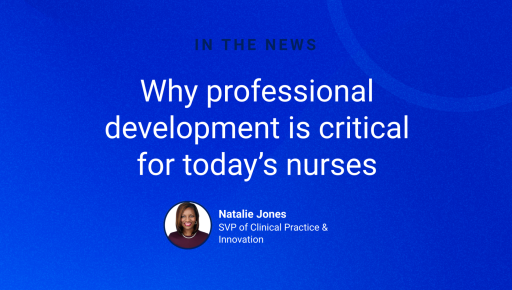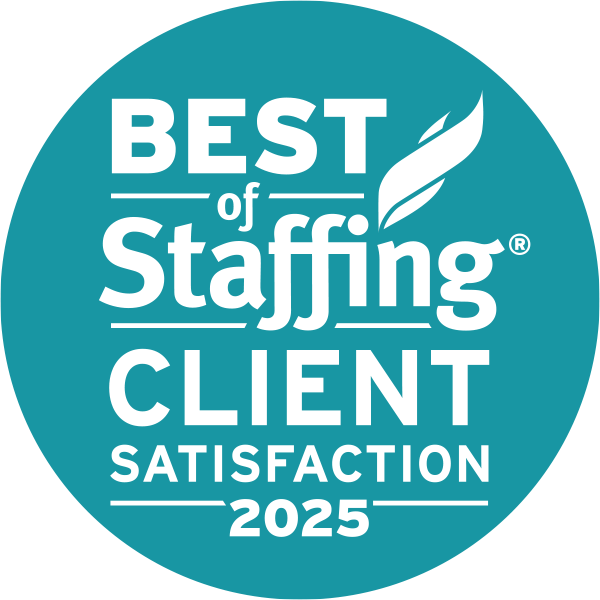The U.S. Bureau of Labor Statistics (BLS) data shows that nurse practitioner positions will grow by 38% from 2022 to 2032. In contrast, BLS data shows that employment for pharmacists is projected to grow by just 3% in that same time frame.
Nursing and pharmacy are two vital components of the healthcare industry. A job in either field can make for a meaningful, fulfilling career. Becoming a nurse practitioner might seem appealing if you are a pharmacist looking for a change. However, there are a few important factors to consider before making the switch, like roles and responsibilities, work environment, education and training, and pay.
If you’re a pharmacist thinking about a career change to nursing, dive into all the important details below to find out if it’s a good fit. If and when you’re ready for your first nursing position, search Prolink’s nursing jobs to find your perfect role.
What is a nurse practitioner?
NPs have a comprehensive perspective on healthcare and practice in many different healthcare settings. They diagnose and treat illnesses, prescribe medications, and order and interpret medical tests just like doctors. They are a vital component of the primary care workforce, ensuring high-quality and patient-centered health care is available to a broad range of consumers. In fact, NPs make up the most rapidly growing component of the primary care workforce.
NPs can be found just about everywhere in the healthcare industry—from private NP-owned practices to large, multistate healthcare systems. They work in outpatient primary care offices, the intensive care unit (ICU), and acute care. You can find work as an NP in small rural communities, large urban cities, and everything in between. Building on the strength of that diversity and continuing to meet the needs of patients and our healthcare system will require a robust NP workforce.
Difference between nurse practitioners and pharmacists
The significant difference between nurse practitioners and pharmacists is their role in primary care. Primary care includes initial assessments of all illnesses and diseases as well as treatments and triage based on knowledge gained from didactic work and years of practice training to gain experience. Pharmacists do not practice primary care, whereas nurse practitioners do.

What does a nurse practitioner do?
A nurse practitioner (NP) is a healthcare professional with advanced nursing education and extensive nursing training. NPs share many duties as physicians, such as physical exams, diagnosing and treating diseases and other health conditions, and prescribing medication.
Some of their typical duties include:
- Taking and recording medical histories and symptoms
- Performing physical examinations
- Prescribing medication
- Writing referrals for specialists
- Ordering and analyzing diagnostic tests, such as laboratory tests or X-rays
- Creating patient care plans
What does a pharmacist do?
A pharmacist is a clinical professional who supplies accurate and safe prescriptions to patients. They fill these prescriptions according to medical practitioners' orders. Pharmacists also ensure the prescriptions suit the patients and don’t negatively interact with medications they’re already taking or with existing health conditions. They can provide medication instructions and offer advice for minor injuries or illnesses.
Some of their typical duties include:
- Assuring optimal quality and lawful supply of medicines
- Labeling medications accurately with the required information on the dosage specific to patients
- Advising patients on the right way to use medications and their side effects
- Supervising the preparation and packaging of medicines before supply to patients
- Reviewing safety levels of newly manufactured drugs and recommendations on combining drugs with diets or other medications
- Managing inventory of the pharmacy's medications
- Monitoring safe disposal of expired medications
- Advising healthcare professionals on safe and effective ways to use medicines
How to become a nurse practitioner
To become an NP, you must:
- Be a registered nurse (RN)
- Have a Bachelor of Science in Nursing (BSN)
- Complete an NP-focused graduate master's or doctoral nursing program
- Pass a national NP board certification exam
Become an RN
A pharmacist can become a nurse by completing the necessary education and training. Nurse practitioners receive six to eight years of training in the medical field. As a PharmD, you likely have some of the educational requirements already. Thus, you may be able to take an accelerated path.
To become a nurse practitioner, you must first become a registered nurse (RN). You can become an RN through an associate’s degree in nursing (ADN) program. You can also complete a bachelor’s degree in nursing (BSN) program. After the RN and BSN, you must complete an NP-focused graduate master’s or doctoral nursing program.
Accelerated nursing programs are fast-track options for earning a Bachelor of Science in Nursing (BSN) or Master of Science in Nursing (MSN). They are designed for students with a bachelor's degree in a non-nursing discipline. Accelerated programs allow students to use credits from their current degree towards their nursing degree. They can also use their current experience, prior education, and RN license to move more quickly through the coursework.

Earn a nursing certification
Nurse practitioners must be nationally certified to practice. This involves passing an examination specific to advanced practice nursing in your chosen specialty, such as the American Academy of Nurse Practitioners (AANP) or the American Nurses Credentialing Center (ANCC) certification exams. Certification also typically includes the requirement of at least 500 supervised clinical hours.
NPs are classified as advanced practice registered nurses (APRNs) — along with certified registered nurse anesthetists (CRNAs), certified nurse-midwives (CNMs), and clinical nurse specialists (CNSs).
Obtain state licensure and national board certification
Once you’ve completed your education and obtained national certification, you can apply for state licensure as a nurse practitioner in your state's Board of Nursing. Be prepared to submit the necessary documentation and pay the required fees. Some states may also require a criminal background check as part of the application process.
National certification boards are rigorous and verify entry-level clinical practice. These exams test both general advanced practice knowledge and population-specific competencies. These exams are specific to NP population education, and NPs are only eligible to sit for exams consistent with their graduate preparation. National board certification not only formally tests your knowledge of all that you’ve learned along your journey to becoming an NP, but it is also a requirement for state licensure and credentialing with insurance companies.
Ongoing education
To ensure the highest standards of care, an advanced practice registered nurse must maintain their national certification and engage in continuous education initiatives as part of the licensure renewal process. This requirement serves as a mechanism to keep NPs abreast of the latest advancements in healthcare, medical technologies, and treatment modalities. By staying current with best practices and emerging trends in healthcare settings, Nurse Practitioners can enhance their clinical expertise and provide patients with cutting-edge, evidence-based care.
Nurse Practitioners must maintain a high level of competence throughout their careers. To sustain their licenses and continue practicing, NPs must adhere to state-specific regulations. Many states often require a comprehensive license review every two years to ensure that NPs meet the evolving standards of practice and adhere to any regulatory updates. This commitment to regular licensure renewal safeguards the profession's integrity and assures patients that they receive care from well-qualified and up-to-date healthcare providers.
Whatever healthcare career you choose, choose Prolink
Whether you make the leap to become an NP or stay the course as a pharmacist, Prolink can help you find the right travel or permanent position for your goals, skills, and lifestyle. Start your job search now or click below to learn more about what we offer healthcare professionals like you.









